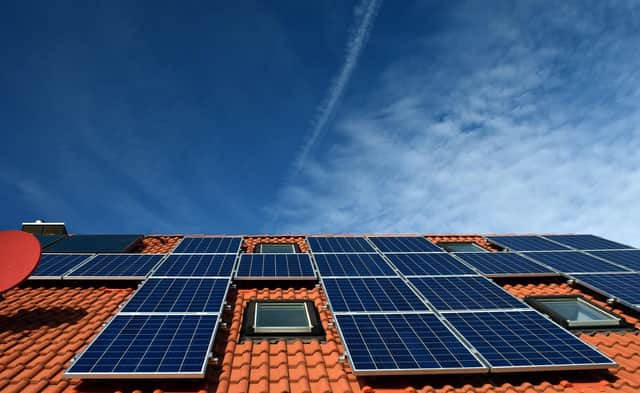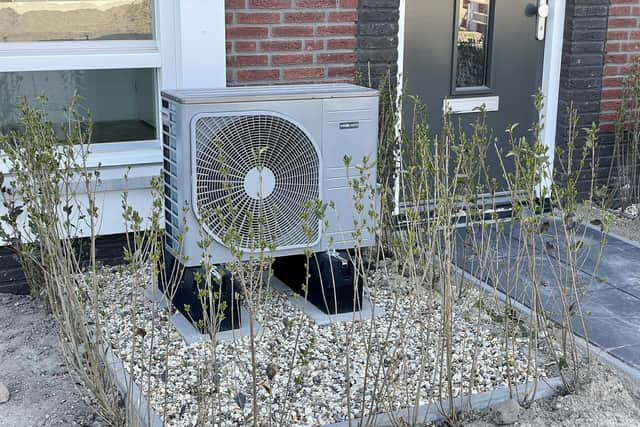How to go about installing green energy in homes, for maximum benefit
This article contains affiliate links. We may earn a small commission on items purchased through this article, but that does not affect our editorial judgement.


Renewable energy has never seemed so attractive, as people seek cost-saving solutions at home, while looking to reduce reliance on fossil fuels.
Research shows two thirds of people across the UK are keen to implement more green behaviours if it would save them money, while 48 per cent agree that energy efficiency is a priority when purchasing a new item for the home.
Advertisement
Hide AdAdvertisement
Hide AdWith Cop27 to take place from November 6 to 18, Mandip Bhamra, head of renewables at www.savemoneycutcarbon.com, has outlined why we should consider installing heat pumps and solar panels to lower carbon emissions.
Solar panels work to lower energy bills because you’re reducing energy consumption from the grid.
Heat pumps are great for decarbonisation, but you do need to focus on the insulation of your building, as they work well for new builds, but not necessarily for older properties.
This is because new builds are geared towards having a lower flow temperature and lower amounts of heat loss. You need to look at where you’re spending, and make other reductions from there.
Advertisement
Hide AdAdvertisement
Hide AdHeat pumps work by capturing underground heat through a network of water pipes. The heat pump then uses electricity to increase the temperature but the energy used is less than that harvested.


Find the heat pump that works for you
These options work best as a sustainable solution when combined with low-temperature heat emitters such as underfloor heating and powered by green or clean electricity.What is involved with installing green technology for homeowners?
Make sure the technology is designed to spec. For solar panels, you want to ensure the roof is as unshaded as possible and is either east, south, or west facing, with reasonable space. You also need to be wary of salespeople overestimating the savings that you’ll make.For heat pumps, you need to take in-depth heat loss calculations of your property first, and if your property does leak heat, see what you can do to address that first.
This can obviously be a little more limited in a listed building. The general rule is that the greater the heat loss in your property, the larger the system needed, and therefore the higher the running costs.How can people access government grants?
Advertisement
Hide AdAdvertisement
Hide AdThere are several financial incentives available for consumers, such as zero VAT on solar panel systems and zero VAT on heat pumps. The Government’s Boiler Upgrade Scheme means you can replace old boilers with heat pumps.
Under this scheme, you’ll be eligible for £5k installation if you go for an air source system, and £6k for ground source.How long is the payback period for green technologies in the home?
There are no set rules, but generally, LED lighting will take two to five years. Solar panels were 15-20 years, but are now six to 12, largely driven by the rising cost of energy.
With BUS and a system that works for your house, it could be eight to 10 years. If you’re transitioning from LPG/Oil this will be quicker than if you were using gas from the mains.To find out more, download the app – ‘SaveMoneyCutCarbon Home’.